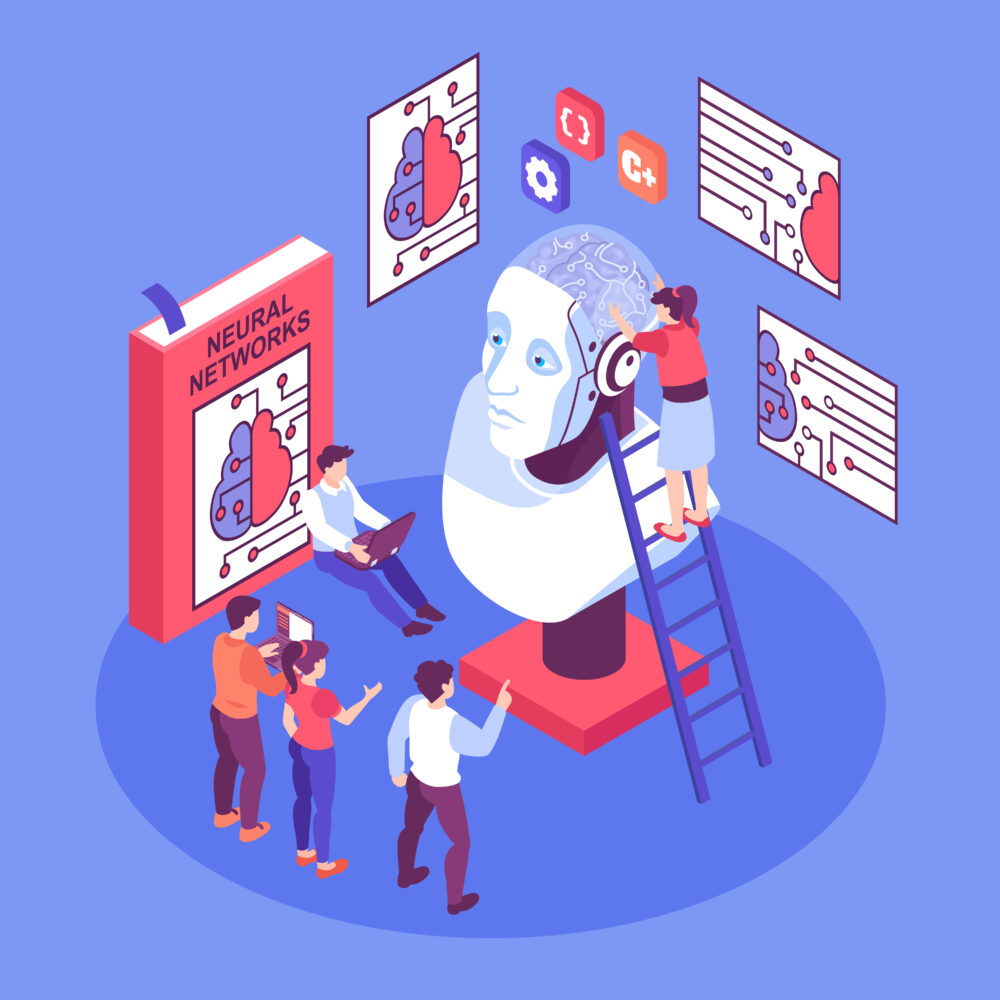Think of a world where AI interprets every heartbeat, every micro-expression, and every little change in posture and is able to predict the next move of an athlete even before he performs it. That world is not science fiction. From the NBA all the way to Formula 1, AI is aiding elite athletes in decoding their emotions, managing stress, regaining confidence, and performing to the best of their ability. But how exactly does AI emotion analysis work, and can it ever compete with human psychologists? Let’s explore the world of sports psychology in the future.
AI and the Athlete’s Mind
For decades, sports psychologists relied solely on human observation, post-game interviews, and intuition during emotion-sensing sessions. Assessing the real mental state of athletes like Cristiano Ronaldo and Serena Williams is almost impossible because elite athletes are trained to skillfully control their facial expressions. This is where AI comes in – machines that don’t blink and never miss even the smallest twitch, processing data at a rate no coach ever could. Machines can process millions of indicators in a matter of seconds. What can we say if even the best bookmaker on its website and in the mobile MelBet app download sets the odds using AI? The reason is accuracy and speed; AI makes mistakes less often and is able to set the most favorable odds for the user!
However, as far as psychology is concerned, specifically, IBM’s Watson, which professional teams utilize, analyzes speech patterns and body language, often picking up signs of stress and loss of focus in mere milliseconds. At the same time, Emotiv’s EEG headsets monitor real-time brain activity and detect fatigue before it impacts performance. The outcome is a data-centric strategy that eliminates guesswork, providing athletes with unprecedented mental coaching tailored specifically to them.
Reading Emotions Through Data
To AI, seeing emotion translates into numbers. Modern algorithms trained on millions of data points can gauge shifts in mood through eye movement, tone of voice, and even breathing. One MIT study revealed that AI-powered facial recognition software is able to identify micro-expressions linked to anxiety with 91% accuracy, significantly surpassing the 73% accuracy human psychologists had.
With elite sports, every millisecond counts. AI systems with the Los Angeles Lakers track the performance metrics of their players, measuring the milliseconds of James’ reaction time. Manchester City’s sports scientists utilize interview AI to conduct sentiment analysis for mental fatigue tracking interviews. AI emotional analysis is reported to boost decision-making by 12% in real-time during games.
How AI Detects Stress and Pressure
Stress is the invisible threat to accomplishing goals, but AI has the tools to detect it before it becomes problematic. Here’s how:
- Analysis of Heart Rate Variability (HRV): These systems can tell when an athlete is feeling emotionally drained. A drop in HRV? That shows someone is feeling anxious before taking a penalty kick.
- Voice Emotion Recognition: Tools like Beyond Verbal are designed to analyze one’s inflection and so many other aspects of a voice. F1 drivers use this technology to make sure that they are calm during G-force.
- Gaze Tracking: A Stanford study proved that slow and unfocused eye movements can be a predictor of fatigue. AI in esports now uses this knowledge to estimate the degrees of concentration professional gamers have during their matches by tracking eye movements.
- Sweat and Skin Sensors: Wearable devices such as an Apple Watch measure skin conductivity and reveal stress spikes during critical moments.
And these are just some of the ways AI detects stress. In fact, there are dozens of different sensors, and each new version of the device adds more and more. By subscribing to Instagram MelBet, you can learn even more interesting facts about sports and technology. Moreover, this group tries to publish a wide variety of content to interest absolutely everyone, so you will definitely find something interesting for yourself there, be it sports news or memes!
Can AI Predict Performance Slumps?
Every athlete goes through this one dry performance dip at some stage in time, but AI aids in predicting these dips beforehand. Kinexon’s AI modules in the NBA observe subtle changes in muscle tension, reaction time, and other biometric data to detect the performance slump before tension sets in. Increased levels of cortisol signal that the individual is at the edge of burnout.
In tennis, for example, AI-assisted analytics monitored emotional drops that followed consecutive losses for Naomi Osaka, enabling her to adjust her training schedule. Harvard uncovered in a 2023 study that emotionally analyzing AI-managed data resulted in an 18% reduction in performance lulls because athletes were able to modify their routines before mental exhaustion set in. This goes beyond intelligent training: it marks the evolution of psychological stamina.
AI vs. Human Psychologists: Who Wins?
While AI does seem to be revolutionizing sports psychology, can it truly replace intuition? Let’s take a look:
| Factor | AI | Human Psychologists | Winner |
| Speed | Processes emotions in milliseconds | Requires multiple sessions | AI |
| Accuracy | 91% accuracy in emotion detection | 73% accuracy in facial analysis | AI |
| Personalization | Adapts to biometric & performance data | Custom strategies based on interviews | Tie |
| Real-time Analysis | Tracks live emotions mid-game | Only available in pre/post-game sessions | AI |
| Empathy & Trust | Lacks deep emotional connection | Builds trust & long-term relationships | Human |
The results? Real-time and live tracking paired with speed-defined efficiency is where AI reigns supreme, but for matters of emotional depth and support, human psychologists are irreplaceable. The most effective solution would be a blend of both worlds.
The Science Behind AI Mental Coaching
The days of mental coaching relying on gut feelings are long gone. It’s a science now! Devices such as NeuroSky neurofeedback systems identify stress-related emotions (subconsciously) and teach athletes how to manage their feelings during intense moments.
In golf, artificial intelligence-enabled mental training for Rory McIlroy helped him modify his breathing and decrease anxiety before taking a shot by 21%. In UFC, AI mental resilience training helped fighters improve split-second decision-making and reduced hesitation by 15%. These figures are astonishing but, more importantly, transformative.

From Biometrics to Brainwaves: AI’s Reach
AI’s capability for emotional assessment transcends the monitoring of facial features:
- Emotion Tracking Through EEG: Brain wave examinations can reveal subconscious stress due to fear or hesitation. Olympic sprinters use it to optimize reaction time.
- Muscle Tension Mapping: AI strain sensors embedded in smart compression clothing examine stress-related muscle tightness, already in use by some NFL franchises.
- Sleep Pattern AI: WHOOP tracks and analyzes sleep quality indicators to forecast emotional burnout days before a competition. NBA players who monitor their sleep report a 17% decrease in injury risk.
- Augmented Reality (AR) Mental Training: AI-augmented VR simulations allow athletes to mentally immerse themselves in the most high-stakes scenarios well ahead of time. This is being implemented in European soccer leagues.
With these advancements, mental training is stepping into the future!
The Future of Emotion Analysis in Sports
AI is not merely an improvement in sports psychology; it is transforming the field completely. Think of AI technology predicting a player’s emotions in real-time during a game and tracking their emotions throughout the game. Now visualize personal AI coaches, readily accessible at any time, providing athletes with mental exercises suited to their specific stress patterns. We are not describing a future that is far off; it’s reality. The only question left to be answered is whether AI will surpass human care and become the ideal mental coach or if human foresight will always reign supreme. The answer to that is coming soon.





